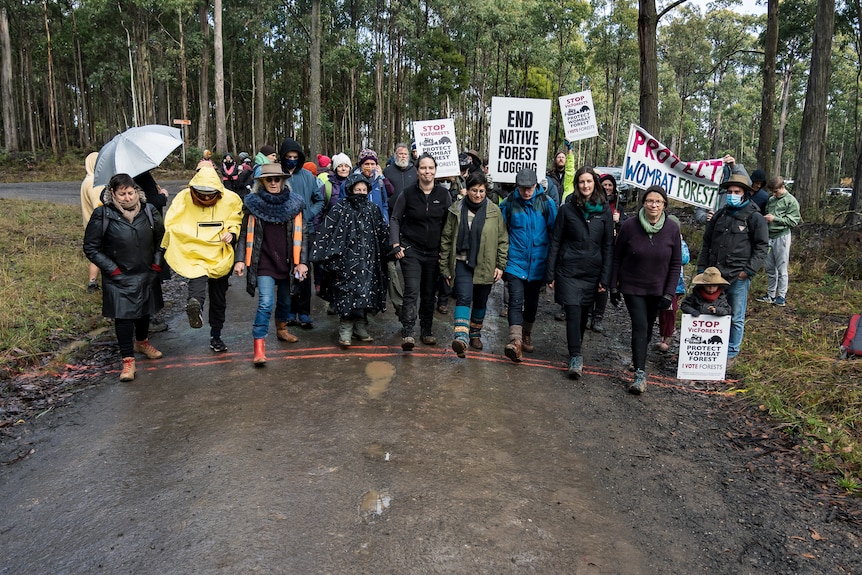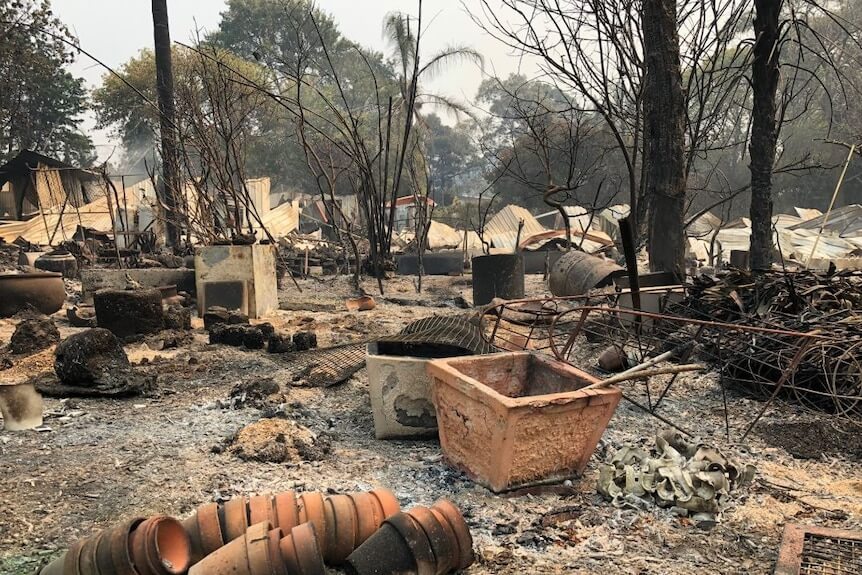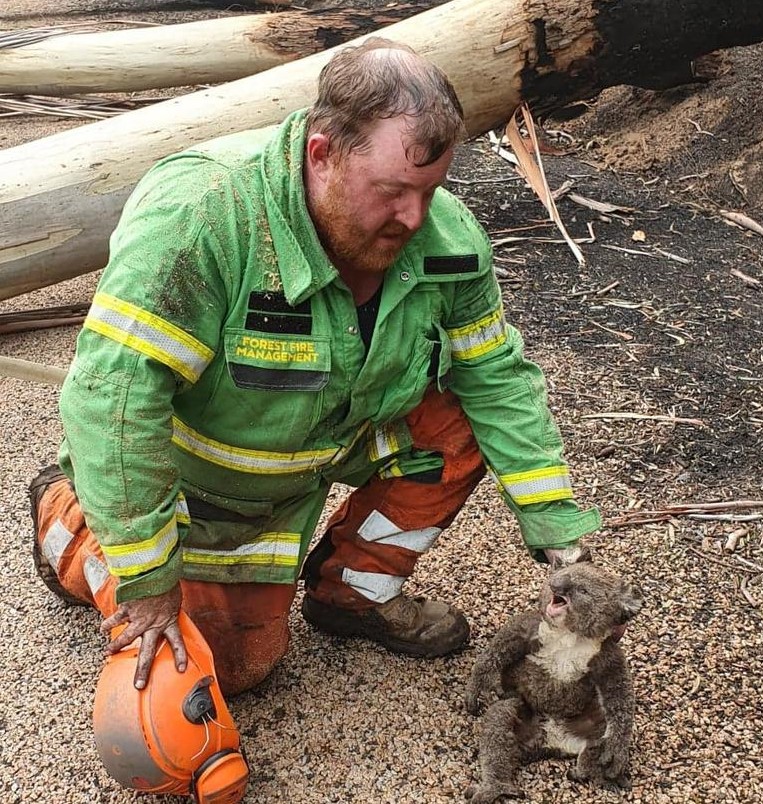In 2019 on a weekend of extreme fire danger, forestry contractor Brett Robin was working in emergency response fighting a fire at the Gippsland town of Bunyip, 80 km south-east of Melbourne.
The fire burned over 10,000 hectares, incinerating an estimated 5000 greater gliders.
When a Forest Fire Management Victoria (FFMV) dozer was trapped on the fire line, Brett, with two FFMV fire crew, drove through the flames to rescue him.
His reward was to be one of the thousands of workers to lose his job as part of the Labor-Greens agreement to close the industry in January 2024.

Contrast this with the actions of the Greens and activists who organised a protest action and tied themselves to forestry machinery, preventing it from being deployed to the string of fires that weekend.
The activists eventually agreed to release the machinery provided they would not be arrested – and they weren’t.
By that stage, two of Melbourne’s water catchments were blazing, one controlled by forestry machinery to just 5 hectares, the other incinerating an estimated 200 Leadbeater’s possums and hundreds of gliders because activists blockaded forestry machinery.
But rather than punish these criminals, the Andrews government held open the back door to them in the courts, refusing to amend the Sustainable Forests (Timber) Act 2004 to close a loophole which has ultimately led to the excuse given this week for destroying the livelihoods of thousands of regional families.
Unlike the Environment Protection Act 2017 (Section 347), the Timber Act fails to specify who has the authority to take legal proceedings for even the most minor breaches.
This means that any half-arsed activist group with outrage to generate can get standing in the Victorian Supreme Court and cripple an industry.
And they did.
They don’t win the cases – they are overturned on appeal or thrown out – but the goal is to get injunctions to stop harvesting rather than prove some minor point in the Act.

And they exploited this loophole over and over with surprisingly well-funded cases, forcing VicForests to fork out tens of millions of dollars in court costs and compensation for unfulfilled timber contracts.
The activists then cry out that VicForests is unprofitable.
On top of that, when VicForests tries to recover $2 million in court costs from one of these activist minority groups, the government tells them to back off. See how this works? They usher activists into the courts through the back door and protect them against the ramifications of failure.
The most galling thing is that the Victorian government then has the temerity to hail itself as the saviour of the regional people it has thrown into a future of uncertainty and anguish through its deals with activists and green factions.
These are people like Brett Robin who have cared for our forests for generations, ensuring they regrow and can provide our most renewable resource in perpetuity. They are hard-working, honest people who are bewildered why they have been victimised when forest harvesting occurs in such small proportion of the forest estate (0.04% harvested and regrown each year).
They wonder what all this impact on the wildlife is when they see possums, gliders, koalas, potoroos and the like thriving in forest regrowth. They can’t understand why, if the activists are to be believed, all these animals don’t seem to exist in the huge portion of forest already locked up in reserves and national parks.
They are bewildered by this notion of wilderness in forests which have been burned in wildfires and blown over in storms or that humans have no place in the forests. Try telling that to indigenous landowners who lament the fact they can’t even heal country by clearing up storm damage in the Wombat state forest without rabid activist extremists trying to tell them they have no idea about land management.
They wonder where our wood will come from if not from our most carefully managed forests and scoff at the notion of plantations that will take decades to yield trees on land which doesn’t exist.
Perhaps Brett Robin and the droves of soon-to-be unemployed should become activists. Instead of generating timber from regrowth forests for renewable wood and fibre products or putting their lives at risk in times of disaster, they can generate outrage while enjoying all the benefits of forest products in the comfort of their homes.

Tiny self-interested groups through to corporate activists such as the Wilderness Society know full well it’s where the money is and when you make enough of it, you can pay academics to generate more outrage for you or mount Supreme Court actions for even more publicity.
To hell with international acceptance of forestry as a climate solution or that we’ll end up putting more stress on countries that don’t have our strict environmental controls. Who cares if we distort the science and the truth of forestry – the papers love a headline. Cha-Ching!
What does it matter if half a billion animals die in the next wildfire because of opposition to fuel reduction and forest management?
We need outrage, because outrage sells and recent events have shown us that it’s a guarantee that this Andrews government will back us all the way … unlike hard-working regional Victorians in our endangered timber towns like Brett Robin.






